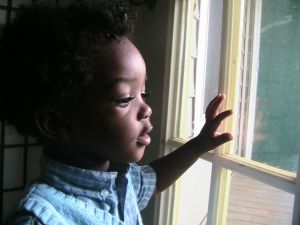 It will hopefully save you and make a difference for someone else.
It will hopefully save you and make a difference for someone else.
As children, we do our best to navigate through this world with the guidance and support of our parents and/or loved ones. As parents, we give all of our love and do our best to nurture and guide our children.
It was through my reflection of the experiences I had as a child that I clearly envisioned the parent I would become upon giving birth. My natural instinct to follow Attachment Parenting International’s Eight Principles of Parenting, which I didn’t even know had names until years later, aligned with what we call Attachment Parenting today. Here is a glimpse into part of what I believe truly makes a difference each day as a parent and how so much of what we experience, from the moment we are born, becomes part of our foundation:
Fourteen days ago, I was painfully aching over the well-being of my little sister whom I love more than I can express. Fourteen days ago, she made a brave decision to save herself by asking for help. Fourteen days ago, she was given another chance to live. Fourteen days ago, I saw hope for the first time in many years.
On New Year’s Day, she unequivocally shared her reality through greetings and wishes, via Facebook…from Palm Springs rehab and it went amazing, they helped me a lot.
I couldn’t be more proud of her uninhibited proclamation or her courage. When we last saw each other, we both expressed a need to share truth in order to relate and connect with others.
Not many truly know the pain or challenges we each endure throughout our lives. We are all simply trying to find our way, and we’re fortunate if we connect with someone, anyone, who hears us or truly “gets” us.
Even then, it still may feel like we’re alone a lot of the time. We may isolate and believe that isolation is the best and only option. It isn’t.
I am so thankful my sister reached out to all of us. I am so happy to witness the outpouring of love and support she is receiving from everyone.
My sister and I grew up in the same home, yet our experiences were very different. When our parents began their lengthy, heart-rending, grievous dance toward divorce, it took many years with much instability and left my brothers, my sister and me with unanswered questions and doubts about our place in this world. The anguish and uncertainty manifested in different ways for each of us, and still does.
As I witness others, including myself, suffering from residual damage leftover from childhood, I am constantly reminded how important and necessary it is to candidly express and connect in order to be heard in some way…even if it’s only to hear our own thoughts and voices clearly.
I have always walked through my life with compassion and love in my heart. I profoundly experience what others feel as we briefly cross paths in this precious life. I am touched by your joy. I am saddened by your despair. I relate to your longing. I want you to know I hear you. I see you. I feel you. As I pass you on the street, as we make eye contact for one second in time, as we come together for reasons we may or may not understand, as we detach and reconnect…I am grateful for my existence. I am grateful for yours.
My sister and I have always shared a deep desire and need to seek out the meaning of life and our purpose here. We’ve traveled different paths along the way, and various answers have been revealed over the years. One thread that always seems to weave through it all is a common yearning for the few simple things I always speak of: To be heard, to be understood, to be loved.
As I go through each day, it becomes clearer that these needs form the basis of our relationships and all of the choices we make in our lives, and whether or not these needs get fulfilled, dictates the outcomes. We were all born with this awareness and longing, and as adults, we can powerfully shift direction for the next generations. We can be positive examples by listening with patience and by accepting and loving people for who they truly are.
We will undoubtedly have our flaws. We will most certainly make mistakes. We are still and always worthy of love.
As I often say and will continue to do so, listening is loving. If you listen without judgment, you will hear what someone so desperately wants and needs you to hear. If we were all truly heard and understood from birth, life would be a very different experience.
There are many things we may keep locked up. There are many things we may believe no one understands. There are many times we may feel alone. If we can be the person who takes the time to listen and understand another, we will make a difference in that person’s life. If you take the time to look into my eyes and hear me, you will make a difference in mine.
My wish for each of us is to believe that with love and support, anything is possible. We may have our stories, our beliefs, our fears, our truth. We may believe we have a right to our resentments, our anger, our strong-hold grip on what we cannot or will not let go of. We have a right to all of it. It is ours. What is also ours, is the choice to be love. To act with love. To open ourselves up to receiving love. To letting go. To moving forward. To living and appreciating each and every breath we take.
Another year has passed. Although I am intensely present to each moment, it still goes by too quickly. Through the challenging times, the magical moments and the many phases of change, I am thankful for the growth, a new day and the gift of being surrounded by the greatest loves of my life.
I wish you all a healthy, loving, inspiring and miraculous New Year.

 I am a graduate student at Mills College. For my research project, I would like to know more about you and your experiences as a mother.
I am a graduate student at Mills College. For my research project, I would like to know more about you and your experiences as a mother.






